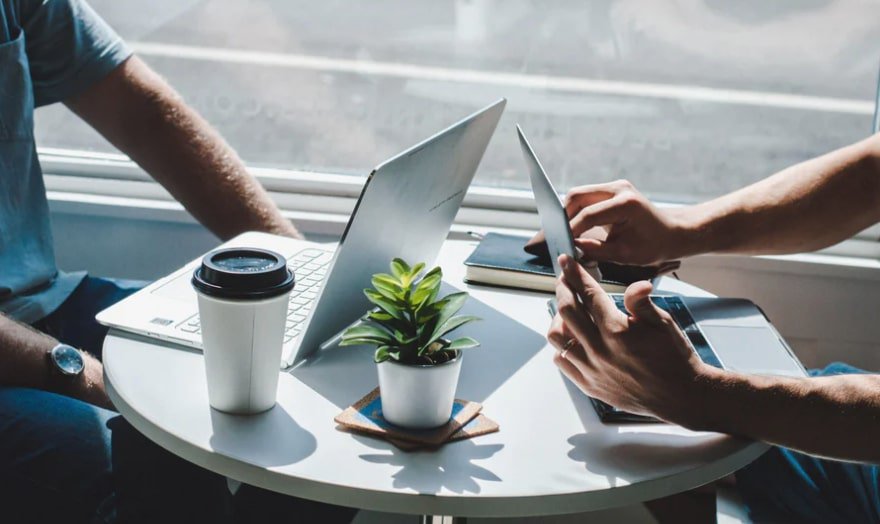Learn How To Impress The Hiring Manager With 27+ Interview Tips For Introverts!


Interviews are already a nerve-wracking process, so for people naturally more quiet and reserved – introverts – it’s understandable that the upcoming job interview is seeming very intimidating.
It doesn’t mean that you can’t perform well. You have strengths as an introvert, and when you keep in mind the following interview tips for introverts, you can feel more confident going into the meeting, as well as after the interview.
Read on to learn how you can ace your interview for any job even if you’re an introvert.
27 Interview Tips For Introverts!

1. Research the company
It’s important to know about the company that you will potentially work at. Not only to get a sense of what kind of person they’re looking for as you learn about their company culture, but also so that you’re sure that this is the type of role that you’d like to have.
Check their website and see if there’s also any industry news detailing projects or events that the company has been involved with. If there’s an opportunity, you can speak about what you learned in the interview as well.
2. List your strengths and weaknesses
You’ll most definitely be asked about your strengths and weaknesses during the interview, so be prepared to answer this by having a list made already. This shows that you’ve thought about it and will mean you’re not stumped trying to think of the answers on the spot. You can also see our guide on the best weaknesses answers in an interview.
3. Prepare key answers
Having answers ready-to-go when you’re asked common interview questions is going to make you feel more at ease going into the interview. Common questions for interviews will generally be asked, no matter the industry. The last points in this article are sample answers to such questions, so read to the bottom to best prepare yourself.
4. Prepare some questions
Not only will you be asked questions, but you may also get a chance to ask your own questions. Interviewers like seeing a candidate speak up in this way, so having some questions ready for them will make you seem more confident and engaged.
5. Practice the interview
If you can practice a mock interview with someone, great! If not, you can even record yourself and watch it back to see how you sound and what your body language is like during the process (more on body language in the following tips).
6. Dress appropriately
Prepare an outfit that is professional and suited to the role you’re applying for. Generally, dress more business-smart in the interview – even if the role is for a casual clothing store – as the interview is a more professional setting. Smart business attire is the way to go.
7. Arrive early
Arriving about 15 minutes before the scheduled interview time is actually considered ‘on time’. If you arrive at 9:00am on the dot (when the interview starts), this is actually arriving late. So plan your journey ahead to arrive early (on time!).

During the interview tips for introverts
Now you’re at the actual interview stage, these tips will help you navigate through the interview questions. They’re specific to introverts in that they detail ways to seem more sociable and outspoken, without having to completely change your personality.
8. Body language is key
You will say a lot even without opening your mouth, purely by how your body language is. The key tips are: don’t cross your arms, sit up tall with shoulders back, match their body language, and use hand gestures as you talk.
9. Use their name
This goes a long way for developing rapport with your interviewer. When they introduce themselves, say their name back straight away, and try to find time to use it again in the interview.
10. Ask questions
As mentioned above, asking questions shows your confidence, and having some already prepared will give you that confidence to speak up. An example is something like: “Where do you see this company headed in the next 3 years?”
11. Smile
It’s simple and effective. People who smile are more likable, and you want to be liked in your interview!
12. Inform, rather than ‘brag’
Introverts tend to not shout out their successes, so when trying to speak up more and share them in the interview, sometimes they can go too far and it comes across as bragging. Find a healthy medium. Be confident and objective as you speak about your accomplishments – you don’t have to try to sell yourself – that’s uncomfortable for all of us, not just introverts. Simply state the facts.
13. Be positive
The way that you present yourself in your answers will reveal a lot about your general life outlook and mindset. People are looking to work with positive people, not complainers. Make sure you are giving a positive spin on what you are talking about.
14. Breathe, instead of saying ‘um’
When you are lost for an answer or trying to think of a word, for example, simply stop and breathe. Try not to ‘um’ and ‘ah’ as you think, as this comes across as more insecure, rather than confident.

After the interview tips for introverts
Now that the interview is over, it’s not time to sit back and do nothing. There are steps you can take to further enhance your success in this application. Read the following after-interview tips for introverts to see how you can come out on top as a key candidate.
15. Firstly, relax and recharge
Yes, there are some things for you to do after the interview. Though before you continue with what’s on our list here, make sure you do take some recharge time after the interview. Introverts recharge through being alone (contrasted to extraverts who recharge with others). Go for a walk, read, watch something, or anything else that lets you unwind from the interview before doing anything else.
16. Refrain from contacting too soon
Though it would be lovely to know the outcome straight away, chances are the interviewer is still in the interviewing stage. Contacting them too soon (the same day) is not a helpful thing. Play it cool and wait 24 hours before you follow up.
17. Send a follow-up email
In your first follow-up email, simply express your gratitude for the opportunity. Refrain from being too forward in asking about their decision, and make it more subtle in writing something like: “I look forward to hearing about your decision.”
18. Do further research
As you wait for their response, you can continue to stay up-to-date with their company with more research. This could also come in handy if there were a second round of interviews, or if you get the job and you want to be very informed about what you’re going into.
19. Second follow-up email
Wait a week before you send your second follow-up email, and again, keep it calm and professional, offering to give them more references or information. Also include that you are still interested, though again, don’t be too blunt when asking about their decision. To learn more, check out our post on polite follow-up emails with included templates.
20. Final follow up
If you still haven’t heard from them a week after the second follow-up email, you can write a final follow-up email another week after that (two weeks after your interview).

Interview tips for introverts: Sample answers
Finally, since a large part of the interview process is going to be you answering questions, these sample answers can help you in the prep stage of the interview process so that you can refer back to these answers and remember them during the interview.
21. Question: ‘Why do you want to work here?’
Answer: ‘I feel that this company has the core values that I have been looking for in an employer. To want to make a difference in the world in a positive way inspires me.’
22. Question: ‘What is your greatest strength?’
Answer: ‘I am an excellent listener. I find that customers love this quality, as well as when I am taking on instruction for my work, I listen intently to what needs to be done so I can get it right.’
23. Question: ‘What is one of your weaknesses?’
Answer: ‘I have often been told I’m a perfectionist, so my attention to detail sometimes has me spending very long on a task. I’m learning to find a balance between quality and efficiency so that my work is still high quality, but I am not getting lost in the tiny details.’
24. Question: ‘What is your availability?’
Answer: ‘I am available every day during the week, and some weekends, where needed. I’m also flexible to come in short notice as I am looking for a full-time role.’
25. Question: ‘How do you handle stressful environments?’
Answer: ‘I communicate well with others so when I feel a situation is challenging, I reach out for support from my team to see how we can work together to solve it.’
26. Question: ‘What would you do if a customer was complaining to you?’
Answer: ‘I would calmly listen to their situation and let them know that I am on their side in doing what I can to find a solution. I would also go to my supervisor/manager to address the situation.’
27. Question: ‘What makes great customer service?’
Answer: ‘I believe that when we do not take things personally, we are able to stay objective and clear with customers to serve them best. When our ego gets involved and we get rattled by little things customers say and do, we are not giving the best customer service we could. So staying objective, and of course, being friendly!’
References
- https://www.cv-library.co.uk/career-advice/interviews/eight-top-interview-tips-for-introverts/
- https://www.thebalancecareers.com/job-interview-tips-for-introverts-2061355
- https://www.topresume.com/career-advice/interview-tips-for-introverts
- https://www.workitdaily.com/13-interview-tips-for-introverts
